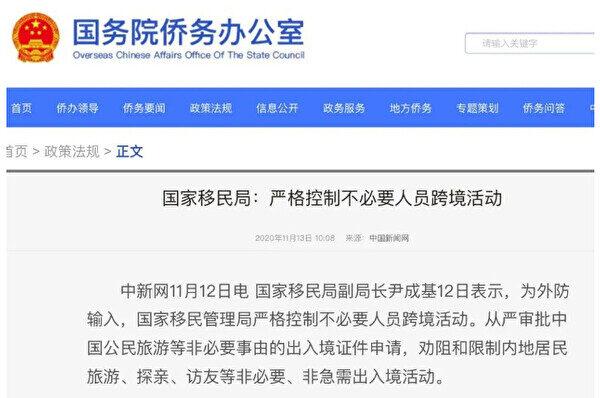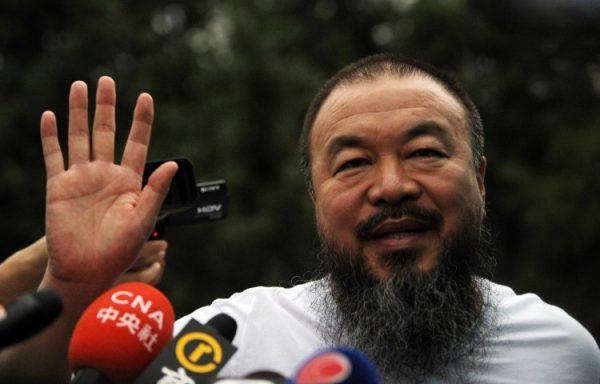Beijing announced new restrictions on Chinese citizens’ foreign travel on Nov. 12. Since then, dozens of land ports and border crossings in China have been closed, and the issuing of new passports to citizens has been suspended nationwide. One analyst believes there are both political and economic reasons behind the regime’s tightened control over cross-border traveling.
The Overseas Chinese Affairs Office (OCAO) of the State Council on Nov. 13 reposted the latest statement of the National Immigration Administration on travel restrictions. Effective immediately, cross-border activities of non-essential personnel are strictly monitored and controlled by the Immigration Administration in order to prevent imported cases of COVID-19.

Dong Guangping, a public welfare activist in mainland China, told The Epoch Times that the Chinese Communist Party (CCP) is using the pandemic as an excuse to restrict cross-border activities, but it’s actually a response to the serious shortage of foreign exchange in China. “Because if people go abroad, they need to exchange foreign currency and take money out, and now the CCP wants to prevent the outflow of foreign exchange,” he explained.
In addition, Dong believes the regime is restricting travel because it doesn’t want its citizens to bring back any literature on COVID-19 that could expose the CCP’s botched handling of the coronavirus when it first broke out in Wuhan city late last year. “Because many countries in the world now condemn the CCP and want to hold it responsible for the pandemic, it needs to prevent the flow and spread of information that is unfavorable to the CCP from outside,” he said.
It’s not the first time the Chinese regime has imposed travel restrictions on its people.
Mr. Du, a teacher in Beijing, told The Epoch Times that as early as 2017, his school began to collect the passports of teachers and staff “for safekeeping.” Since the beginning of this year, travel has been curbed for the school staff. If they want to travel abroad, they have to obtain approval from the Department of Education.

Chinese netizens are complaining about the new restrictions on social media.
One netizen said, “In our state-owned enterprise we are required to hand over all our passports and write a guarantee letter to never apply for new passports privately.”
Another netizen said, “I went to various cities trying to get a passport and applied many times for it, but all got denied. I was told directly [by the government] it cannot be issued, there is no way.”
Dong commented on the many ports and borders that are being shut down now. “By preventing both foreign entry and outbound travel, (the CCP) has locked themselves in isolation.”
Dong believes the travel restrictions will mostly affect high-ranking and wealthy Chinese people. “These rich people cannot travel abroad to visit relatives, immigrate and invest, or seek medical treatment abroad now. The impact is huge.”




